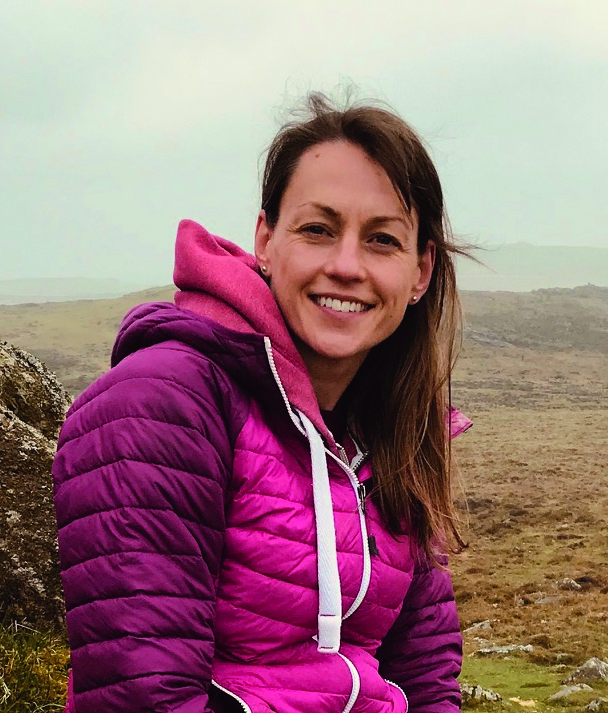
Sarah McPherson
Managing editor, BBC Wildlife Magazine
Sarah is managing editor for BBC Wildlife Magazine. She has been on the title for more than a decade, and in previous lives has also been the magazine’s production editor, features editor and acting deputy editor. Sarah commissions scientists, writers and photographers from across the globe, and has worked with some of the world’s most renowned wildlife experts. She also regularly writes features - on topics ranging from birding in Colombia to the plight of wildlife rangers - and other content for both the magazine and the website.
Recent articles by Sarah McPherson

What's the world's fastest snake? At a speedy 15km/h it could move quicker than you
BBC Wildlife section editor Sarah McPherson answers your wild question.

What is a Portuguese man of war? This is why they aren't jellyfish...
Well, it's not a jellyfish, for starters ...

Watch incredible BBC footage of how tiny birds build spectacular domes – hanging fortresses that are an epic feat of engineering
Just how do southern masked weavers build their incredible nests?

Can a human outrun a crocodile? Just how fast are these deadly reptiles?
Just how fast are crocodiles?

Top 10 wildest and most extreme places to see wildlife in the British Isles
Feeling brave? Hate crowds? Here are 10 places that offer a really wild day out.

It’s the largest cat in the Americas and is one of the world's most powerful predators, able to bite straight through the skull of its prey
Our guide to the largest cat in the Americas – the jaguar, including how to identify, their diet and best places to see them in the wild.

It may look adorable – with its fluffy coat, tail and feet – but don't be fooled as this ferocious predator can leap 15 meters and take down prey 3 times its size
Learn about one of the world's most elusive cats in our guide to the snow leopard, including where they live, diet and conservation.

What's the world's most poisonous tree?
The world's most poisonous tree must rely on tides and currents to disperse its fruits.

What are Judas animals?
We take a look at how Judas animals are used to help safeguard native biodiversity

See inside David Attenborough’s EPIC 360° wildlife experience in London’s Natural History Museum
A new immersive experience at the Natural History Museum, narrated by David Attenborough, opens this week

Watch amazing footage of dolphins performing spectacular 3 metre-high aerial corkscrews – and learn how and why they do it
Spinner dolphins are famed for the acrobatic spins, but just why and how do they perform these gymnastic moves?

This cute, furry jungle thief – with a long bushy tail – has an amazingly flexible nose and incredibly supple, double-jointed ankles
Learn all about the coati, a relative of the racoon that lives in the Americas and builds nests in trees.

How many legs does a kangaroo have?
Scientists say kangaroos have a third leg masquerading as a tail.

Do you know your Zygomorphic from your Anthropocene? No? Then you need our scientific and biological terms glossary
Have you ever puzzled over the meaning of a particular wildlife word or phrase? Then puzzle no more! From the 'Fraser Darling effect' to the 'K-T Boundary', our glossary provides the explanation – in plain, simple English.

Spinning around: This is probably the most joyful, adorable video you'll see all day...
Spinning apes give clues on why humans seek out mind-altering experiences, according to new research

Can animals be conscientious?
Can other animals can be conscientious?

Most painful sting, smallest cat and hairiest animal – meet 18 amazing animal record breakers
We all love a fantastic record breaker – whether it’s the fastest shark, the hairiest mammal or the loudest animal. Meet the impressive record-breaking members of the animal kingdom.

What's the smallest carnivore?
Did you know Britain's weasel (the least weasel) is the smallest carnivore in the world?

Was Megalodon the world's most fearsome, largest apex predator ever? Meet the super-shark that could swallow killer whales whole but didn't like the cold
Megaladon was three times the length of a great white and ruled the ocean for millions of years. Here's what you need to know about this phenomenal fish.

Just how are cheetahs able to run so fast? All you need to know about the beautiful big cat, including the secrets behind its phenomenal speed
Our expert guide to cheetahs, including how fast they can run, what they eat and where they live.

There's a shark rush hour? Yes - scientists reveal the secrets of the ocean's 'Shark Highway'
This rush hour is one you probably don't want to get stuck in

All you need to know about zebras, from where they live and why they migrate to the mystery behind their stripes
A distinctive animal that lives in herds - learn more about zebras with our expert guide, which looks at key species facts, where they live in the wild and how far they migrate.

Enthralling, spectacular photographs of the pumas of Patagonia
Living secretive lives against the spectacular backdrop of Chile’s Torres del Paine, Patagonia’s pumas are proving a conservation success.

Fierce, majestic and deadly: your ultimate guide to the world's biggest birds of prey
All you need to know about the magnificent birds of prey, including the biggest in the world